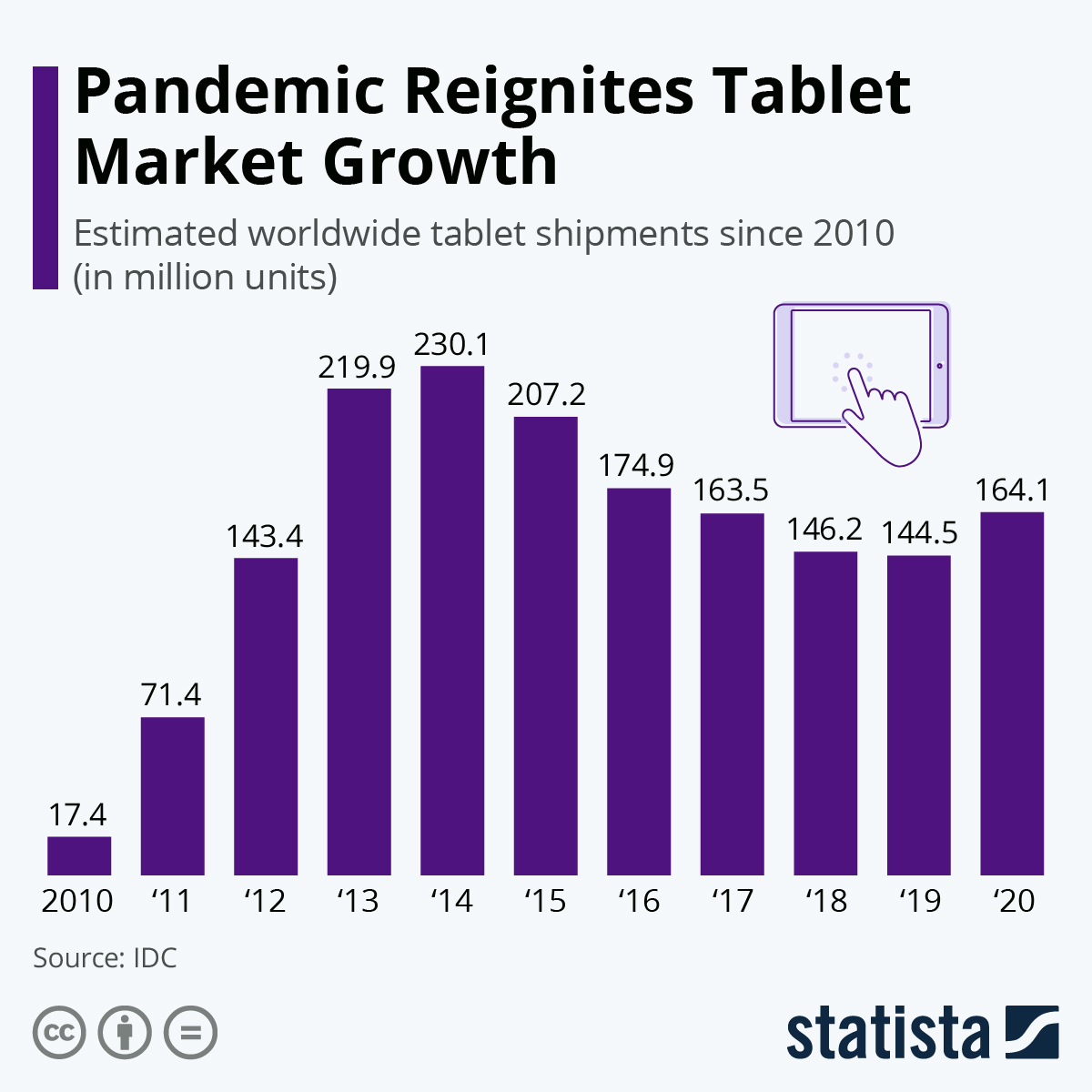Global tablet shipments continued their downward trend in 2023, falling to the lowest level in more than a decade. According to IDC, Apple, Samsung and others shipped 128.5 million tablets last year, down from 161.6 million in 2022. "With no significant improvements to the economy and consumers allocating their money to things beyond consumer electronics, tablets may not be very high on the priority list," Anuroopa Nataraj, senior research analyst at IDC, said in a statement, before adding that "2024 is expected to show some rebound opportunities," provided that the economic backdrop improves. New iPad models could be a much needed shot in the arm for the industry, as Apple remains the undisputed market leader with close to 40 percent market share in terms of unit shipments and even more than that in terms of value.
Following the original iPad’s release in 2010, tablet sales had taken off like a rocket, peaking at 230 million units in 2014. After that, the market cooled off significantly though. First came the realization that people would use their (unsubsidized) tablets longer than they would use their phones. Then smartphones grew larger and larger, putting the need to buy an additional device into question for many consumers. Global tablet shipments gradually dropped from 230 million in 2014 to 145 million in 2019, before Covid-19 provided a lifeline to the industry. As people adapted to working or studying from home, the industry saw unprecedented demand in the consumer and education segments and the market returned to growth in 2020 and 2021. The resurgence was short-lived, however, as tablets seem to go through a bit of an identity crisis being stuck between laptops and smartphones.




















